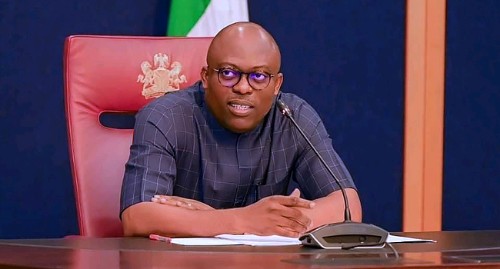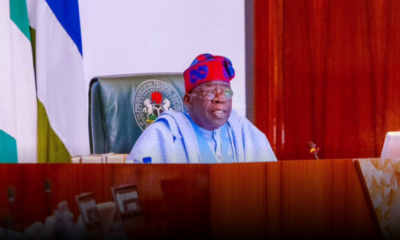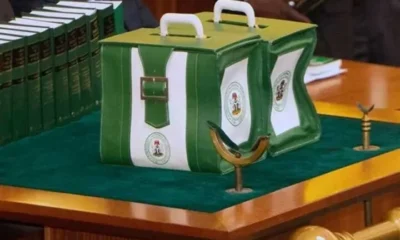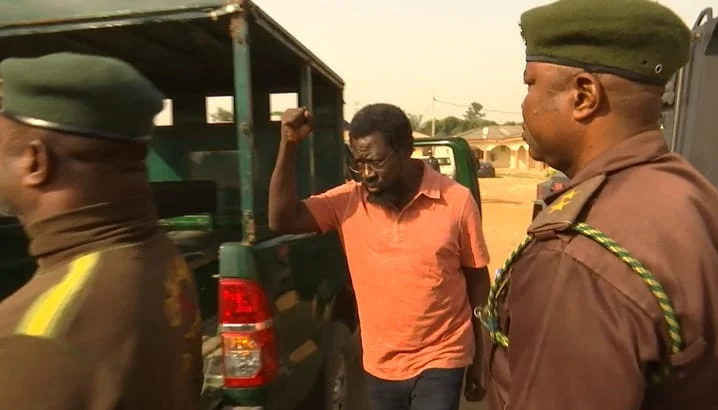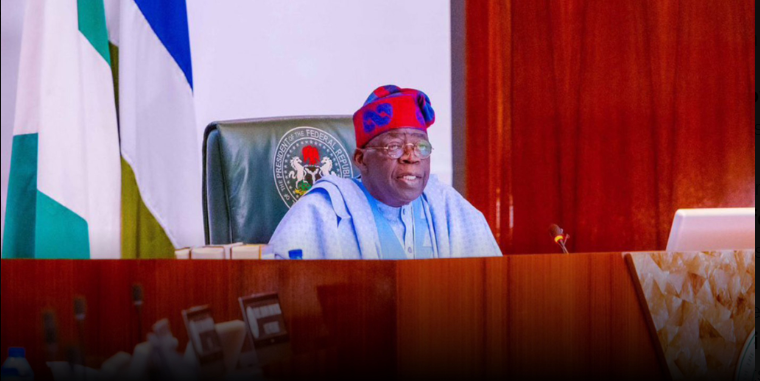The Federal Government plans to spend N8.52tn (inclusive of government enterprises) on personnel and pension costs for federal workers next year, according to an analysis of the 2025 Appropriation Bill.
This amount represents an increase of N3.17tn or 59.16 percent from the 2024 provision of N5.35tn.
The document also revealed that government expenses on salary payments alone will reach N7.54tn, reflecting an increase of N2.75tn from the N4.79tn paid to federal workers in 2024.
The personnel and pension costs of N8.52tn, along with the debt service cost of N16.33tn, combine to a total of N24.85tn, which accounts for 53.98 percent of the total N46.02tn 2025 budget.
It was also noted that the government will spend more on debt servicing than on paying the salaries and pensions of its workers.
Recall that President Bola Tinubu presented the budget titled “Budget of Restoration: Securing Peace, Rebuilding Prosperity” to a joint session of the National Assembly on Wednesday, outlining an ambitious N49.70tn spending plan.
The budget prioritizes defence, infrastructure, and human capital development, with a projected deficit of N13.39tn to be financed through borrowing.
Speaking at the National Assembly, Tinubu stressed his administration’s commitment to strengthening security and revamping the nation’s infrastructure.
In the appropriation bill document obtained by our correspondent, the government earmarked a total sum of N7.54tn for salaries, N984.91bn for pension and gratuities and N16.33tn for debt servicing.
It also proposed spending of N2.58tn on the service-wide votes, N3.18tn on capital supplementation and N4.44 for statutory transfers.
Further checks showed that the State House earmarked N15.09bn for the purchase of tyres for bulletproof vehicles, Sport Utility Vehicles, operational vehicles, plain cars and the construction of an office complex for Special Advisers and Senior Special Assistants.
It also proposed a total sum of N5.49bn as a provision for the annual maintenance of the Presidential Villa.
N164m will be spent on the purchase of tyres for bulletproof vehicles, plain cars, jeeps, platform trucks and other utility and operational vehicles.
Out of the sum, N1.1bn was earmarked for the replacement of SUV vehicles, and N3.66bn for the purchase of State House operational vehicles.
It stated that N127.86m will be spent on the procurement of SUVs for Mr President and the Vice President. This cost will be covered by the office of the president.
Similarly, N285m will be spent for the purchase of motor vehicles under the office of the Chief of staff to the president, while the Chief security officer to the President got an allocation of N179.63m for the purchase of security and operational vehicles.
Further checks showed that N2.12bn was allocated for honorarium and sitting allowances and proposed spending of N1.83bn for the construction of an office complex for Special Advisers and Senior Special advisers.
Observation also showed that the Federal Government earmarked N21.04bn for the Medical and Dental Council of Nigeria, the Nursing and Midwifery Council of Nigeria, and the Pharmacy Council of Nigeria in the 2025 appropriation bill.
This was according to allocations under the Federal Ministry of Health and Social Welfare for next year.
The MDCN regulates the practice of Medicine, Dentistry, and Alternative Medicine in the country.
The NMCN is the sole governing body that regulates all cadres of nurses and midwives in Nigeria.
The PCN regulates all aspects of pharmacy education, training, and practice, including Pharmacy Technicians and Patent and Proprietary Medicine Vendors.
A breakdown of the details showed that the MDCN got the largest share of the allocations among the councils. It got N18.11bn.
A total of N1.92bn was allocated to the PCN, and a total of N1.01bn was allocated to the NMCN.
Meanwhile, the government had said in 2023 that it would discontinue budgetary allocations to professional bodies and councils.
In a memo to one of the affected councils, which was signed by the signed by the former Director-General of the Budget Office of the Federation, Ben Akabueze, and dated June 26, 2023, the Budget Office of the Federation said the move was in line with the decision of the Presidential Committee on Salaries.
The memo stated that funding would be stopped for at least 30 of the professional bodies, and councils by December 2024 whilst budgetary allocations would be stopped for other bodies by December 2026.
The memo sent to one of the professional bodies read, “I wish to inform you that, the Presidential Committee on Salaries, at its 13th meeting, approved the discontinuation of budgetary allocation to Professional Bodies/Councils effective December 31, 2026.
“The purpose of this letter, therefore, is to inform you that, in compliance with PCS’s directive, this Office will no longer make: budgetary provisions to your Institution with effect from the above-stated date, and you will be regarded as a self-funded organisation.
“For the avoidance of doubt, you will be required, effective December 31, 2026, to be fully responsible for your personnel, overhead, and capital expenditures.”
Findings revealed that several professional bodies within the Ministry of Health and Social Welfare are scheduled not to receive budgetary allocations for 2024.
These include the NMCN, PCN, MDCN, Medical Laboratory Science Council of Nigeria, Community Health Practitioners Registration Board, Medical Rehabilitation Therapy Board, Dental Technologists Registration Board, and Environmental Health Registration Council of Nigeria, among others.
Further checks showed that the Federal Ministry of Agriculture and Food Security has proposed spending N54.38bn from its N636bn allocation in the 2025 proposed budget on Federal Universities of Agriculture.
The proposed expenditure on the universities represents 8.4 per cent of the ministry’s total allocation.
Allocations to the universities include N13.77bn for the Federal University of Agriculture, Abeokuta, Ogun State; N14.17bn for the Federal University of Agriculture, Makurdi, Benue State; N3.98bn for the Federal University of Agriculture, Zuru, Kebbi State; N2.96bn for the Federal University of Agriculture, Bassam-Biri, Bayelsa State; and N3.58bn for the Federal University of Agriculture, Mubi, Adamawa State.
While the ministry’s budget prioritizes education and research, the overall federal budget emphasises infrastructure and human capital development.
However, the budget also includes a projected deficit of N13.39tn, to be financed through borrowing.
A lecturer at the Joseph Sarwuan Tarka University, Makurdi (formerly University of Agriculture, Makurdi),
Dr Moses Ogah described the N54bn allocation as a positive development but emphasized the need for strategic implementation to ensure meaningful outcomes.
“Yes, it is a step in the right direction. We cannot say it is enough, but I think it has never been like this before. So, if someone is coming out with a proposal like that, it’s good,” he said.
Ogah highlighted the potential of these universities to address food security challenges, reduce food costs, and contribute to national development.
He noted, “The essence of establishing the University of Agriculture is to engage in food production so that food can be sold to the populace at subsidized rates. Unfortunately, we are not living up to the expectations and mission of these institutions. Food remains very expensive.”
He also stressed the importance of utilizing the universities’ vast resources.
“They have vast land. If the government implements this allocation effectively, it will be beneficial,” he said.
Linking the funding to the country’s food inflation challenges, which stood at 37.7 per cent as of November according to the National Bureau of Statistics, Ogah urged the government to support critical infrastructure like processing industries, bakeries, and livestock facilities.
“The whole of Benue State doesn’t even have a hatchery. Livestock comes from Plateau or Ibadan under stressful conditions and some die before arrival. If a university like ours can have such facilities, it would be a relief,” he explained.
Despite past challenges, Ogah expressed optimism, citing the availability of skilled manpower in these institutions.
“We have specialists in different areas. If these universities focus on food production, it will significantly benefit the country,” he added.
Reflecting on the original purpose of these institutions, he recalled their establishment during the Babangida administration, inspired by the Indian model.
However, he lamented that some of the core mandates, such as the development of grasslands and animal husbandry, remain unmet.
Speaking at the National Assembly, President Tinubu reiterated his administration’s commitment to strengthening security and revamping infrastructure.
The budget is based on key economic assumptions, including a projected decline in inflation from 34.6 per cent to 15 per cent and an improvement in the naira exchange rate from N1,700 per dollar to N1,500 per dollar.
With the proposed allocations and strategic focus, stakeholders believe the initiative could be a significant step toward achieving food security and economic development in Nigeria.
Credit: The Punch

 BIG STORY2 days ago
BIG STORY2 days ago
 BIG STORY4 days ago
BIG STORY4 days ago
 BIG STORY5 days ago
BIG STORY5 days ago
 BIG STORY3 days ago
BIG STORY3 days ago
 BIG STORY4 days ago
BIG STORY4 days ago
 BIG STORY3 days ago
BIG STORY3 days ago
 BIG STORY2 days ago
BIG STORY2 days ago
 BIG STORY21 hours ago
BIG STORY21 hours ago




